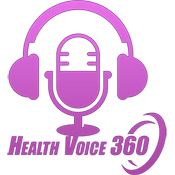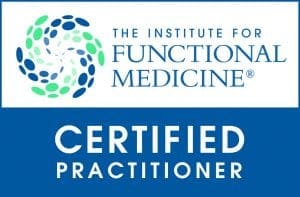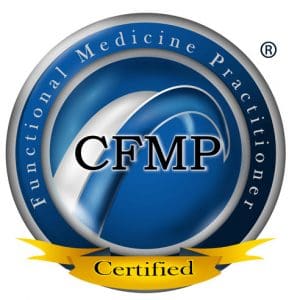A woman’s concerns about her endocrine health will be on her mind each month from age 12. Indeed, hormonal cycles will always lead to a complex symphony of what we consider women’s health. Nevertheless, nutrition compounds often play the part of building blocks of the orchestra conductors called hormones. Therefore, if one is the other’s precursor, there must be a combination that leads to a harmonious symphony.
A woman’s health is a barometer of her environment. It is modeled and shaped according to her evolution in the womb and the social, cultural, and ecological environment of her childhood. – Dr. Mark Hyman.
Women’s health
Women’s health and endocrine function are complex. Indeed, women are commonly exposed to many symptoms that they already grew accustomed to them. On the contrary, functional medicine experts are trying to change the idea and realizing that these symptoms are related to chro
A woman’s concerns about her endocrine health will be on her mind each month from age 12. Indeed, hormonal cycles will always lead to a complex symphony of what we consider women’s health. Nevertheless, nutrition compounds often play the part of building blocks of the orchestra conductors called hormones. Therefore, if one is the other’s precursor, there must be a combination that leads to a harmonious symphony.
A woman’s health is a barometer of her environment. It is modeled and shaped according to her evolution in the womb and the social, cultural, and ecological environment of her childhood. – Dr. Mark Hyman.
Table of Contents
Women’s health
Women’s health and endocrine function are complex. Indeed, women are commonly exposed to many symptoms that they already grew accustomed to them. On the contrary, functional medicine experts are trying to change the idea and realizing that these symptoms are related to chronic low-grade inflammation, an unhealthy diet, stress factors (uncontrolled stress hormones and their effects), and lack of exercise are triggers of these phenomena. Besides, they conclude that women can make a small shift in the lifestyle that will promote hormonal balance and improve their quality of life.
Common symptoms and risk factors |
| Premenstrual syndrome – Monthly weight fluctuation – Edema, swelling, puffiness, or water retention – Feeling bloated – Headaches – Mood swings – Tender, enlarged breasts – Depression – Feeling unable to cope with ordinary demands – Backache, joint or muscle pain – Premenstrual food cravings (sugar or salt) |
| • Irregular cycles, heavy bleeding, light bleeding • Infertility • Use of birth control pill or other hormones • Premenstrual migraines |
| • Breast cysts or lumps or fibrocystic breasts • Family history of breast, ovarian, or uterine cancer • Uterine fibroids • Peri-menopausal or menopausal symptoms |
| – Hot flashes – Mood swings or depression or anxiety – Night sweats – Insomnia – Loss of libido or sex drive – Dry skin, hair, and vagina – Joint pains – Palpitations – Trouble with memory or concentration – Bloating or weight gain around the middle – Facial hair |
| • Exposure to pesticides (food, water, air) |
Hormone synthesis:
It is fundamental to know that women’s hormones are synthesized through their main precursor, Testosterone that is dependent on cholesterol. Indeed, this last information confirms that diet contributes to the formation, receptor activity, and detoxification patterns on hormonal metabolism.
As stated above, estrogen synthesizes from testosterone. This synthesis is part of a complex metabolic route in which enzymes are dedicated to aromatase, oxidize, reduce, sulfonate, hydroxylated, and methylate to provide estrogen function and structure. The term estrogen refers to the 4 known types of estrogen:
Types of estrogen:
- Estrone (E1).
- Estradiol (E2).
- Estriol (E3).
- Estretol (E4).
In their synthesis route, Estrone and Estradiol are formed from testosterone and androstenedione with an enzyme called aromatase. Additionally, they can E1, and E2 can be interconverted via 1 7B- hydroxysteroid dehydrogenases. On the other hand, estriol is synthesized by estrone via Cytochrome P450, which first forms 16A-hydroxyestrone and becomes estriol. Estrogen can also be stored in some tissues as estrone sulfate, estrogen sulfotransferase, which catalyzes this action. Finally, estrogens are first hydroxylated and then sulfated and glucuronidated to be eliminated from our body.

Nutrition and Diet:
Past studies have shown that diet plays an essential role in the modulation of estrogen synthesis. Conversely, the commonly reported hyperinsulinemia in patients with hormonal disturbances, promotes testosterone production and reduces sex hormone-binding globulin. Besides, alcohol has been associated with low estrogen detoxification, which increases the risk of developing breast cancer. On the contrary, the ingestion of a high fiber diet can reduce unconjugated estrogens and enterohepatic circulation.
Conversely, a reduced glycemic load diet is recommended to balance hormone levels. The combination of this diet with N-3 fatty acids is found to elevate hydroxylation estrogen, promoting its elimination. Also, probiotics supplementation shows a strong association with reducing B glucuronidase-producing bacteria leading to a production of enterolactones.
An overload of estrogen can lead to different kinds of cancers. This is associated with a decrease of 2-OH estrogens. Indeed, for estrogen to be metabolized and excreted, they have to be hydrolyzed at -2, -4, and -16 carbon position. Afterward, this hydroxylation allows this compound to be sulfated and glucuronidated, and ready to be excreted.
Phytonutrients and antioxidants:
Nevertheless, the integration of cruciferous vegetables to the diet has shown an impactful effect, increasing the hydroxylation at the -2 carbon. Furthermore, foods like legumes, clover, flax seeds, seed oils, vegetables, and kudzu root containing high levels of phytonutrients and soy isoflavones can improve the hydroxylation -16 carbon. In addition to their hydroxylation benefits, soy isoflavones modulated the action NF-kB. This translated to reducing IL-16 expression and therefore prevented tumorigenesis associated with breast, colon, prostate, lung, and ovary cancers.
Curcumin increases the action of glutathione and glutathione S- transferase. Conversely, this increase of glutathione reduces the oxidation of catechol estrogen that can potentially turn into quinones.
Women’s hormonal health depends greatly on hormonal balance. Different environmental factors can mediate a hormonal imbalance, which allows us to treat them from different points of view. As a woman, I rather think about hormonal disbalance as the way that Dr. Hyman explains it: hormones are the birds in the coalmine, modulators in our body. Therefore, if something is wrong with the bird, we have to look at the environment and change, prevent, and modulate the factors that affect it. Indeed, women’s endocrine health can be strongly modulated by the nutritional improvement of their diet, physical exercise, and stress management. Use this as a guide to include new foods and supplements to improve your health outcomes and look for professional guidance. The partnership between healthcare professionals and patients will provide an extra layer to the patient’s support system.- Ana Paola RodrÃguez Arciniega. Master in Clinical Nutrition
Thomas, Mark P., and Barry VL Potter. “The structural biology of estrogen metabolism.” The Journal of steroid biochemistry and molecular biology 137 (2013): 27-49.
Hyman, Mark A. “The life cycles of women: Restoring balance.” Alternative therapies in health and medicine 13.3 (2007): 10-17.
Book online appointments or Online nutritional assessment.
Additional Useful Links:
Set Appointments 24/7:
Book Online Appointment: https://bit.ly/Book-Online-Appointment
Take Your Functional Wellness Assessment Today:
Online Functional Medicine Assessment: https://bit.ly/functionmed
General Disclaimer
Professional Scope of Practice *
The information herein on "Women’s Endocrine Nutrition" is not intended to replace a one-on-one relationship with a qualified health care professional or licensed physician and is not medical advice. We encourage you to make healthcare decisions based on your research and partnership with a qualified healthcare professional.
Blog Information & Scope Discussions
Welcome to El Paso's Premier Wellness and Injury Care Clinic & Wellness Blog, where Dr. Alex Jimenez, DC, FNP-C, a Multi-State board-certified Family Practice Nurse Practitioner (FNP-BC) and Chiropractor (DC), presents insights on how our multidisciplinary team is dedicated to holistic healing and personalized care. Our practice aligns with evidence-based treatment protocols inspired by integrative medicine principles, similar to those found on this site and our family practice-based chiromed.com site, focusing on restoring health naturally for patients of all ages.
Our areas of multidisciplinary practice include Wellness & Nutrition, Chronic Pain, Personal Injury, Auto Accident Care, Work Injuries, Back Injury, Low Back Pain, Neck Pain, Migraine Headaches, Sports Injuries, Severe Sciatica, Scoliosis, Complex Herniated Discs, Fibromyalgia, Chronic Pain, Complex Injuries, Stress Management, Functional Medicine Treatments, and in-scope care protocols.
Our information scope is multidisciplinary, focusing on musculoskeletal and physical medicine, wellness, contributing etiological viscerosomatic disturbances within clinical presentations, associated somato-visceral reflex clinical dynamics, subluxation complexes, sensitive health issues, and functional medicine articles, topics, and discussions.
We provide and present clinical collaboration with specialists from various disciplines. Each specialist is governed by their professional scope of practice and their jurisdiction of licensure. We use functional health & wellness protocols to treat and support care for musculoskeletal injuries or disorders.
Our videos, posts, topics, and insights address clinical matters and issues that are directly or indirectly related to our clinical scope of practice.
Our office has made a reasonable effort to provide supportive citations and has identified relevant research studies that support our posts. We provide copies of supporting research studies upon request to regulatory boards and the public.
We understand that we cover matters that require an additional explanation of how they may assist in a particular care plan or treatment protocol; therefore, to discuss the subject matter above further, please feel free to ask Dr. Alex Jimenez, DC, APRN, FNP-BC, or contact us at 915-850-0900.
We are here to help you and your family.
Blessings
Dr. Alex Jimenez DC, MSACP, APRN, FNP-BC*, CCST, IFMCP, CFMP, ATN
email: coach@elpasofunctionalmedicine.com
Multidisciplinary Licensing & Board Certifications:
Licensed as a Doctor of Chiropractic (DC) in Texas & New Mexico*
Texas DC License #: TX5807, Verified: TX5807
New Mexico DC License #: NM-DC2182, Verified: NM-DC2182
Multi-State Advanced Practice Registered Nurse (APRN*) in Texas & Multistate
Multistate Compact RN License by Endorsement (42 States)
Texas APRN License #: 1191402, Verified: 1191402 *
Florida APRN License #: 11043890, Verified: APRN11043890 *
* Prescriptive Authority Authorized
ANCC FNP-BC: Board Certified Nurse Practitioner*
Compact Status: Multi-State License: Authorized to Practice in 40 States*
Graduate with Honors: ICHS: MSN-FNP (Family Nurse Practitioner Program)
Degree Granted. Master's in Family Practice MSN Diploma (Cum Laude)
Dr. Alex Jimenez, DC, APRN, FNP-BC*, CFMP, IFMCP, ATN, CCST
My Digital Business Card
RN: Registered Nurse
APRNP: Advanced Practice Registered Nurse
FNP: Family Practice Specialization
DC: Doctor of Chiropractic
CFMP: Certified Functional Medicine Provider
MSN-FNP: Master of Science in Family Practice Medicine
MSACP: Master of Science in Advanced Clinical Practice
IFMCP: Institute of Functional Medicine
CCST: Certified Chiropractic Spinal Trauma
ATN: Advanced Translational Neutrogenomics




















